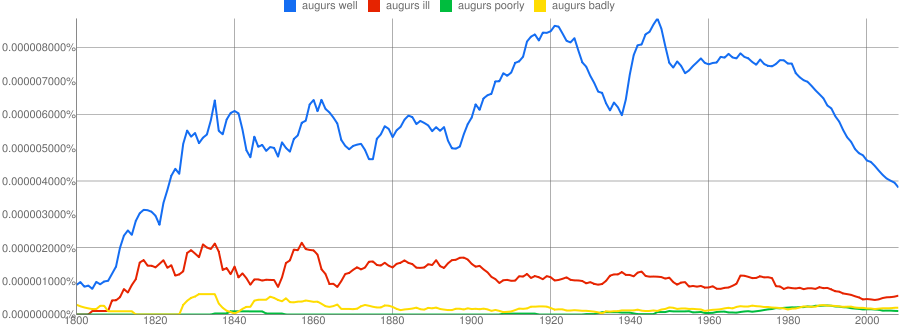Among words of its kind, foreshadow is one of the most neutral. Its synonyms forebode, threaten connote problems, but foreshadow itself seems to not do so: "To presage, or suggest something in advance."
I usually think of presage as neutral, i.e. of its "An intuition of a future event; a presentiment" meaning, but I see it also has a usage that may be negative: "A warning of a future event; an omen".
The words I meant by "words of its kind", above, are synonyms (not all relevant) of presage, foretell, and omen: announce, annunciate, anticipate, augur, augury, bode, call, forebode, foreboding, forecast, forerunner, foretell, foretoken, harbinger, herald, indication, omen, portend, portent, predict, premonition, presage, prognostic, prognosticate, promise, prophesy, sign, threat, threaten, warning.

